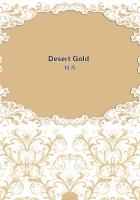A MARTINMAS summer of Mrs Henchard's life set in with her entry into her husband's large house and respectable social orbit; and it was as bright as such summers well can be. Lest she should pine for deeper affection than he could give he made a point of showing some semblance of it in external action. Among other things he had the iron railings, that had smiled sadly in dull rust for the last eighty years, painted a bright green, and the heavy-barred, small-paned Georgian sash windows enlivened with three coats of white. He was as kind to her as a man, mayor, and churchwarden could possibly be. The house was large, the rooms lofty, and the landings wide;and the two unassuming women scarcely made a perceptible addition to its contents.
To Elizabeth-Jane the time was a most triumphant one. The ******* she experienced, the indulgence with which she was treated, went beyond her expectations. The reposeful, easy, affluent life to which her mother's marriage had introduced her was, in truth, the beginning of a great change in Elizabeth. She found she could have nice personal possessions and ornaments for the asking, and, as the medieval saying puts it "Take, have, and keep, are pleasant words." With peace of mind came development, and with development beauty. Knowledge - the result of great natural insight - she did not lack;learning, accomplishments - those, alas, she had not; but as the winter and spring passed by her thin face and figure filled out in rounder and softer curves; the lines and contractions upon her young brow went away;the muddiness of skin which she had looked upon as her lot by nature departed with a change to abundance of good things, and a bloom came upon her cheek.
Perhaps, too, her grey, thoughtful eyes revealed an arch gaiety sometimes;but this was infrequent; the sort of wisdom which looked from their pupils did not readily keep company with these lighter moods. Like all people who have known rough times, light-heartedness seemed to her too irrational and inconsequent to be indulged in except as a reckless dram now and then;for she had been too early habituated to anxious reasoning to drop the habit suddenly. She felt none of those ups and downs of spirit which beset so many people without cause; never - to paraphrase a recent poet - never a gloom in Elizabeth-Jane's soul but she well knew how it came there; and her present cheerfulness was fairly proportionate to her solid guarantees for the same.
It might have been supposed that, given a girl rapidly becoming good-looking, comfortably circumstanced, and for the first time in her life commanding ready money, she would go and make a fool of herself by dress. But no.
The reasonableness of almost everything that Elizabeth did was nowhere more conspicuous than in this question of clothes. To keep in the rear of opportunity in matters of indulgence is as valuable a habit as to keep abreast of opportunity in matters of enterprise. This unsophisticated girl did it by an innate perceptiveness that was almost genius. Thus she refrained from bursting out like a water-flower that spring, and clothing herself in puffings and knick-knacks, as most of the Casterbridge girls would have done in her circumstances. Her triumph was tempered by circumspection;she had still that fieldmouse fear of the coulter of destiny despite fair promise, which is common among the thoughtful who have suffered early from poverty and oppression.
"I won't be too gay on any account," she would say to herself. "It would be tempting Providence to hurl mother and me down, and afflict us again as He used to do."We now see her in a black silk bonnet, velvet mantle or silk spencer, dark dress, and carrying a sunshade. In this latter article she drew the line at fringe, and had it plain edged, with a little ivory ring for keeping it closed. It was odd about the necessity for that sunshade. She discovered that with the clarification of her complexion and the birth of pink cheeks her skin had grown more sensitive to the sun's rays. She protected those cheeks forthwith, deeming spotlessness part of womanliness.
Henchard had become very fond of her, and she went out with him more frequently than with her mother now. Her appearance one day was so attractive that he looked at her critically.
"I happened to have the ribbon by me, so I made it up," she faltered, thinking him perhaps dissatisfied with some rather bright trimming she had donned for the first time.
"Ay - of course - to be sure," he replied in his leonine way. "Do as you like - or rather as your mother advises ye. 'Od send - I've nothing to say to't!"Indoors she appeared with her hair divided by a parting that arched like a white rainbow from ear to ear. All in front of this line was covered with a thick encampment of curls; all behind was dressed smoothly, and drawn to a knob.
The three members of the family were sitting at breakfast one day, and Henchard was looking silently, as he often did, at this head of hair, which in colour was brown - rather light than dark. "I thought Elizabeth-Jane's hair - didn't you tell me that Elizabeth-Jane's hair promised to be black when she was a baby?" he said to his wife.
She looked startled, jerked her foot warningly, and murmured, "Did I?"As soon as Elizabeth was gone to her own room Henchard resumed. "Begad, I nearly forgot myself just now! What I meant was that the girl's hair certainly looked as if it would be darker, when she was a baby.""It did; but they alter so," replied Susan.
"Their hair gets darker, I know - but I wasn't aware it lightened ever?""O yes." And the same uneasy expression came out on her face, to which the future held the key. It passed as Henchard went on:














